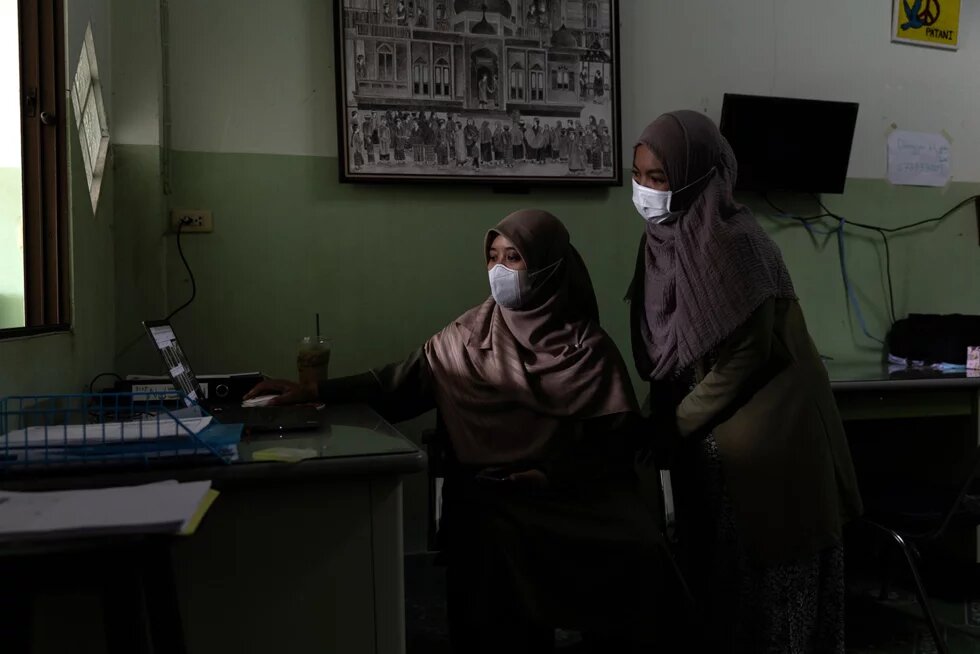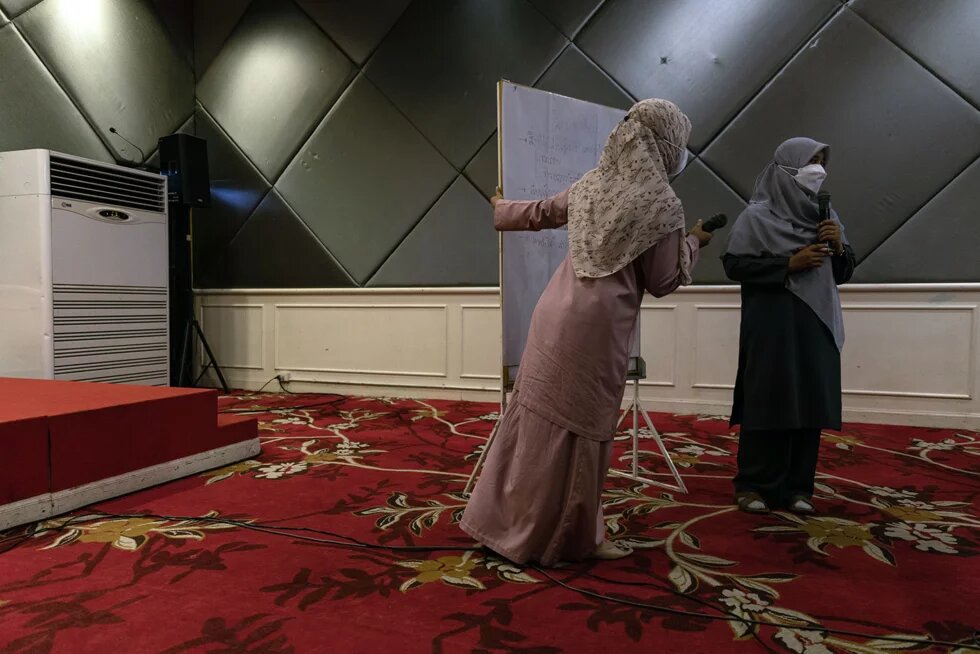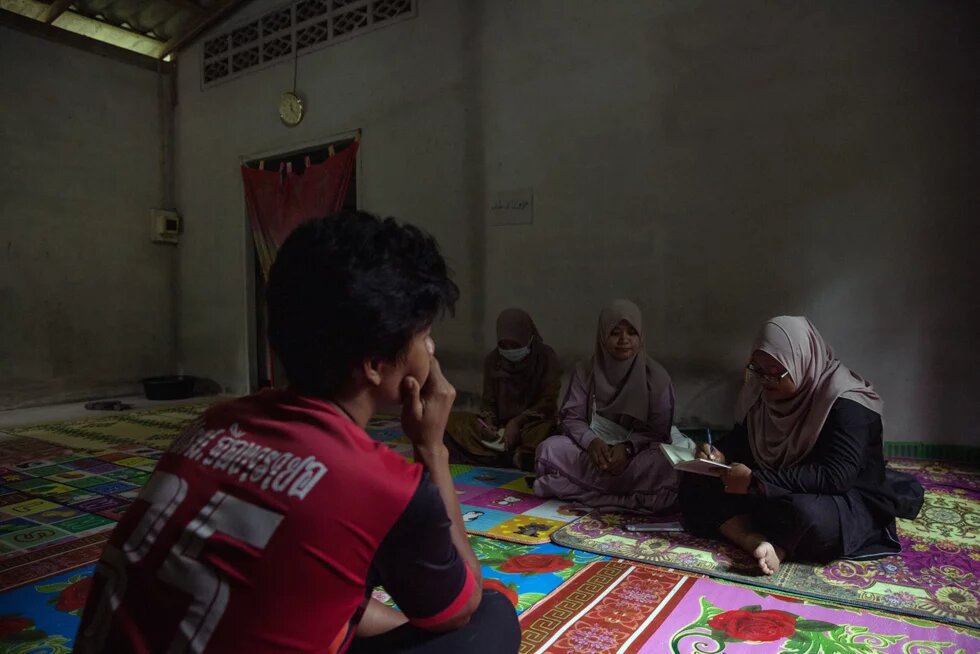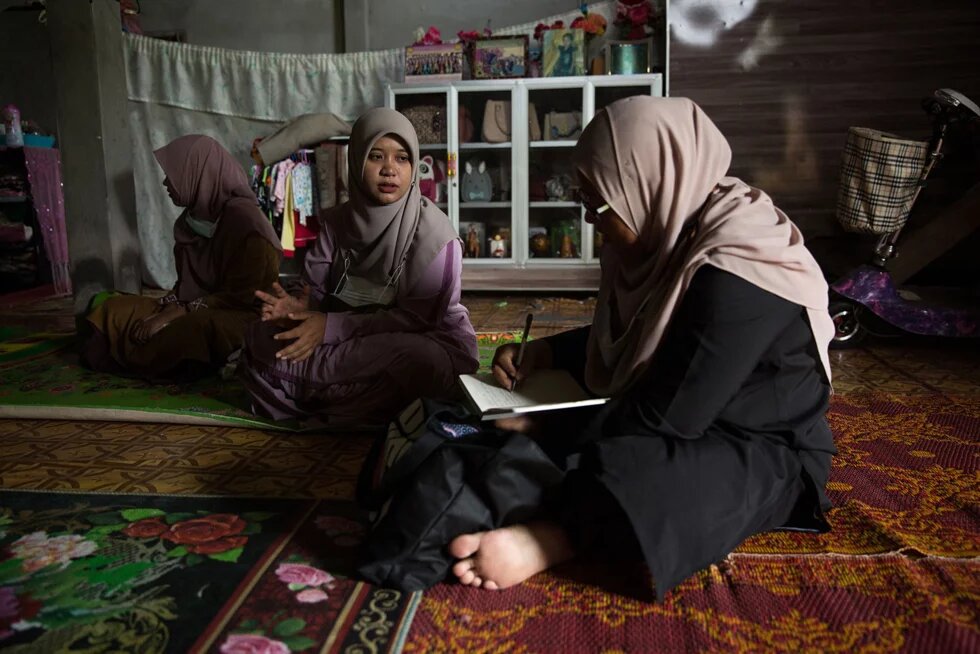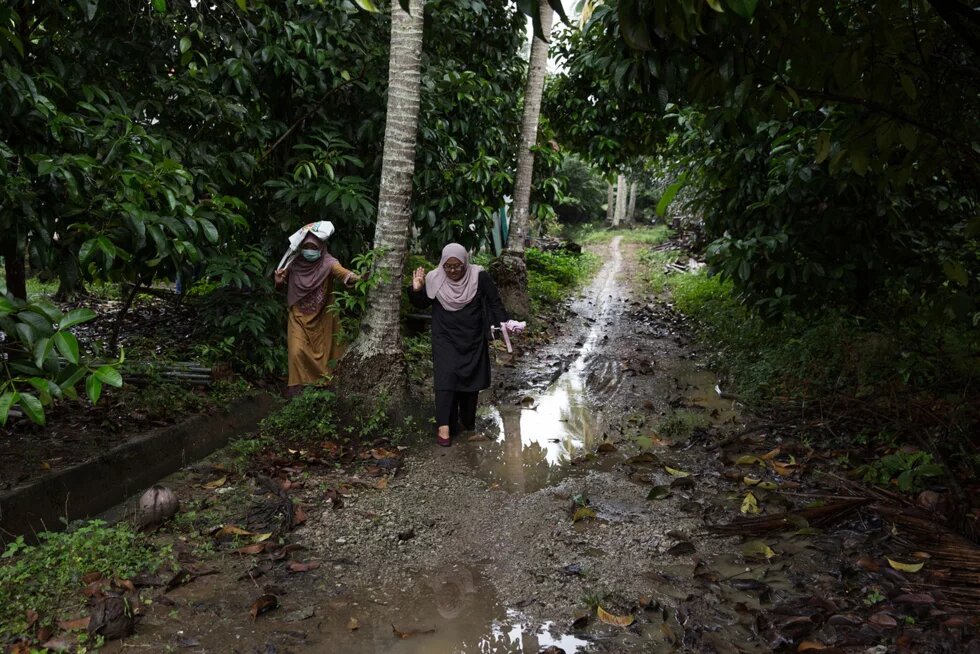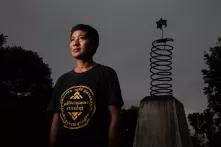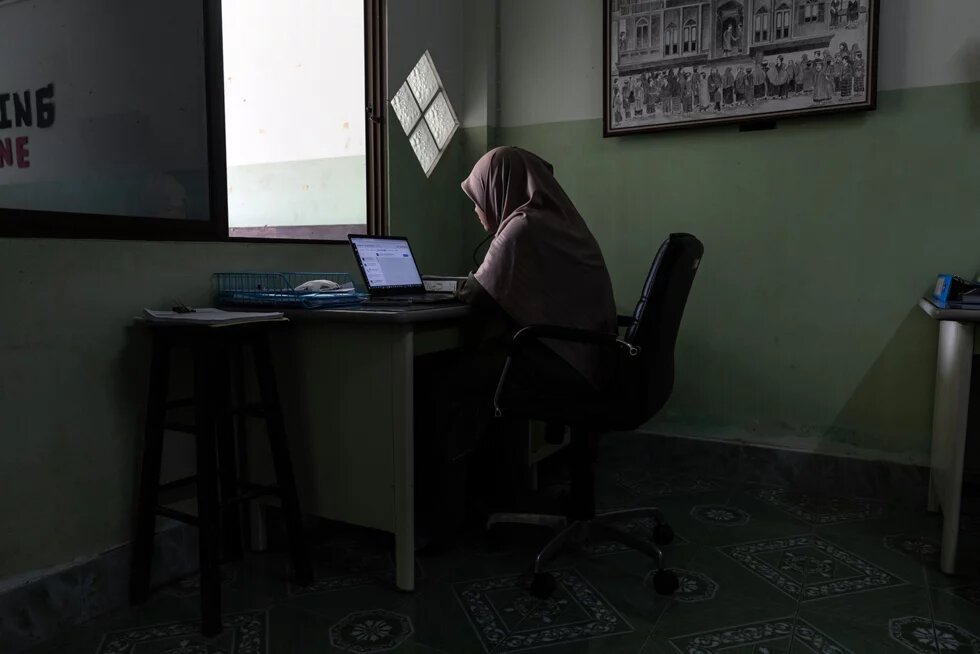
Yureesa Sama was a high-school student when the police officers showed up at her doorstep for the first time in 2010. Her family lived in a small house surrounded by rice paddies in a Malay-Muslim community in Pattani province in Thailand's Deep South. The officers questioned her parents, family members and neighbours. Then they left, only to return the following week, the one after that and so on. Sometimes they just hung around the house for hours watching who came and went. Yureesa sensed her parents' concern and knew something was wrong, but she didn't quite understand what was going on. Finally, she was told not to worry and focus on her studies. In most other places in Thailand, the officers' conduct would have raised eyebrows, but the Deep South has been ruled by martial law since 2005. Growing up in a region affected by a prolonged separatist insurgency, Yureesa was taught not to ask too many questions.
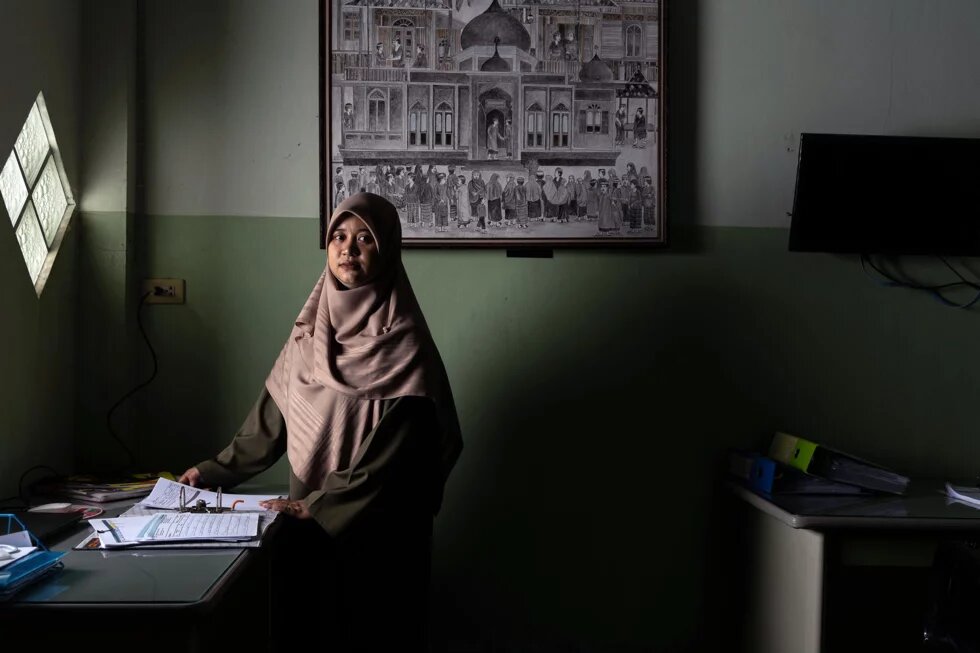
Growing up with unrest
Her home is part of the once independent region of "Patani" that includes today's provinces of Pattani, Narathiwat, Yala, and parts of Songkhla near the Malaysian border. A minority in mainly Buddhist Thailand, ethnic Malay Muslims form about three-quarters of the population in the Deep South.
For decades, separatist groups have been pushing for independence or greater autonomy for the region. In the early 2000s, the conflict grew increasingly violent, with insurgents regularly leading attacks on state officials and civilians. Data from Deep South Watch, a monitoring group, shows that the violence has caused more than 7,000 deaths and 13,000 injuries. Although the intensity of the violence has recently subsided, bombings, shootings, and targeted killings still occur.
Soon after the police began visiting Yureesa's house, she learned that her brother, a teacher at a local Islamic school, was accused of being involved in insurgent bombings. He was put behind bars, and the family scrambled to prove his innocence and get him out.
"Our neighbours were scared and didn't want to get involved with us anymore. They thought we were a criminal family," Yureesa recalls. "We could only keep our heads down and avoid meeting anyone who believed we were bad people."
According to civil society groups, the government's counter-insurgency operations have led to innocent people being detained, interrogated and allegedly tortured. The enforcement of the draconian emergency decree and martial law in the region since 2005 enables security officers to take any measures in the name of fighting the insurgency.
"The incident with my brother impacted the whole family mentally and financially," Yureesa says. "Luckily, we are a big family. Our siblings put all their resources together to get him out of jail."
They managed to find witnesses who proved his innocence, leading the court to dismiss the case and ordered his release. But he spent one year in jail – for nothing.
Yureesa did not know just how much the incident would change her life. A few years later, it would stir a desire in her to defend others from falling victim to similar human rights violations.
"When I look back, this incident is one of the reasons that brought me to work with Duay Jai and assist people and families affected by the violence," she says.
Supporting the wrongfully accused
Founded in 2011, Duay Jai is a local rights group supporting victims of arbitrary detention, rights violations and alleged torture by security personnel in the Deep South.
Yureesa joined the organisation after graduating from university and now, at 27, serves as its secretary-general. One of her main tasks is to provide mental health support to families affected and traumatised by the conflict.
"I wasn't much involved with my family's fight for my brother's freedom back then," Yureesa recalls. "I was only a student. If I could turn back time, I would have done more to help them."
When Yureesa joined Duay Jai in 2016, the organisation's founder and director, Anchana Heemina, found her easygoing and cheerful. She also soon proved to have a particular skill to empathise and understand the hardships of the people she works with.
"It's because she has firsthand experience and understands people's situations and their feelings," Anachana says. "Conflict is not only about what's happening out there; it's also about the impact on people's inner world."
"Yureesa pays close attention and does a good job in recording and reporting each case," says Anchana, whose brother-in-law was once also detained and accused of being an insurgent.
Duay Jai, which means 'with heart,' provides legal assistance to people facing charges for allegedly being involved in the insurgency and runs peacebuilding education programmes.
The organisation also conducts research on human rights violations and publishes regular reports. It recently reported that over 7,000 people, including 24 women and 132 children, were detained without access to their families or lawyers since 2010. At least 144 people claimed they were tortured by security officers to obtain forced confessions. At least five people died while detained at military bases.
Understanding the conflict
Yureesa grew up during the unrest and only remembers life with it. She first heard about a bombing in her hometown when she was in primary school, followed by many more insurgent attacks during her adolescence.
But somehow, the conflict had always felt distant to her until it arrived on her own doorstep that day.
"People who don't have experienced human rights violations or know someone directly affected may not be aware of the scope of the conflict," Yureesa says. "They lived with the violence for so long and have lost the will to speak out about it."
Yureesa began exploring the background of the violence when she studied economics at Prince of Songkla University Pattani Campus. She met new friends and joined student clubs encouraging her to read books, follow the news, and exchange with others about the complexity of the conflict.
The insurgency dates back to the early 20th century when the Buddhist Thai state annexed the Malay Sultanate of Patani. It followed a series of forced assimilation measures stoking resistance among the local Muslim population. By the mid-1950s, a separatist insurgency movement had emerged. The violence escalated in 2004, with several groups launching attacks on security forces, state officials and civilians.
Understanding the Deep South conflict mainly as a security issue, the Thai state adopted heavy-handed counter-insurgency measures that heavily impacted the lives of ordinary people. It created what feels like an occupation zone with checkpoints, barbed wire and ten-thousands of soldiers stationed in the region.
Traumatised and disappointed
Yureesa says she's seen a lot during her work, but certain cases left a lasting impact. She vividly remembers one incident in 2017 in which armed men stopped a bus heading from Yala's Betong district to the capital. They ordered the driver and passengers off and then torched the bus.
The state's response was swift and harsh. Security officers cordoned off the entire area of Bannang Sata district, where the incident happened, raiding every house as they searched for the attackers. Over 50 locals were detained under the emergency decree, but only 12 were eventually charged and prosecuted in court.
"There was no compensation for those whose houses were raided and those being detained despite having no relation to the insurgent groups,” Yureesa says. "They were traumatised and disappointed with security officers who mistreated them."
"I was with them for two years, observing them fighting the legal cases for the release of their loved ones. It made me want to work even harder to assist people facing injustice."
Yureesa believes the state's heavy-handed reaction toward the Bannang Sata communities undermined people's trust in public institutions. As a result, many Malay-Muslims have doubts about whether or not the state can restore peace in the Deep South.
"At the policy level, [the decision makers] have promised to solve the conflict," she says. "But it doesn't seem like it's their priority as violence and human rights violations have persisted on the ground."
Yet, Yureesa is convinced that a way forward can only be found in coordination with government agencies and the security forces. "The solution can't come without the state's involvement."
Peace negotiations
In 2013, the government of Yingluck Shinawatra spearheaded a series of peace negotiations with one major insurgent group called the BRN (Barisan Revolusi Nasional or National Revolutionary Front) despite the military's reluctance.
But the negotiations, in which Malaysia acted as arbiter, were disrupted by the 2014 military coup led by General Prayut Chan-ocha, Thailand's current prime minister. The peace talks loosely resumed one year later, but with a different umbrella group of insurgents called MARA Patani. It was soon disrupted again by the Covid-19 pandemic.
"The past peace negotiations made no big impact here. My biggest wish is to see this negotiation continue with fruitful outcomes and satisfy local people," Yureesa says. "I also want to see the government lifting the special laws that lead to human rights violations."
Since 2020, Duay Jai has been collecting case studies of people being detained by security officers. The information will be used for a report to provide an overview of human rights violations under the emergency decree and martial law. It will also suggest ways to address the tension and mistrust between the local population and the security forces.
Determined to build peace
As a result of the prolonged conflict, Yureesa has seen many friends moving out of Pattani to seek education and job opportunities in Thailand's urban centres and Malaysia.
But Yureesa doesn't regret her choice of staying in the region. On the contrary, she's grateful for the opportunity to work for Duay Jai and contribute to building peace and protecting people's rights.
"I think I've changed a lot," she says. "I had little knowledge of the conflict, politics, security or peace, and even human rights. Now I care for all of them."
Yureesa is aware of the dangers that come with her line of work. The military sued Duay Jai for defamation in 2019 and the group has also been the target of a coordinated campaign of online harassment. But despite the risks, the young human rights defender is determined to continue her advocacy. She feels lucky to have the support of her family and the communities she works with.
"I'm aware that my work can put me at risk, especially with my brother having been arrested," she says. "But I have my family's support because they don't want anyone ever experiencing what they had to face."
This piece was produced by HardStories with the support of the Global Support for Democracy Unit of the Heinrich-Böll-Stiftung European Union. Editing by Fabian Drahmoune.
The article first appeared here: eu.boell.org
